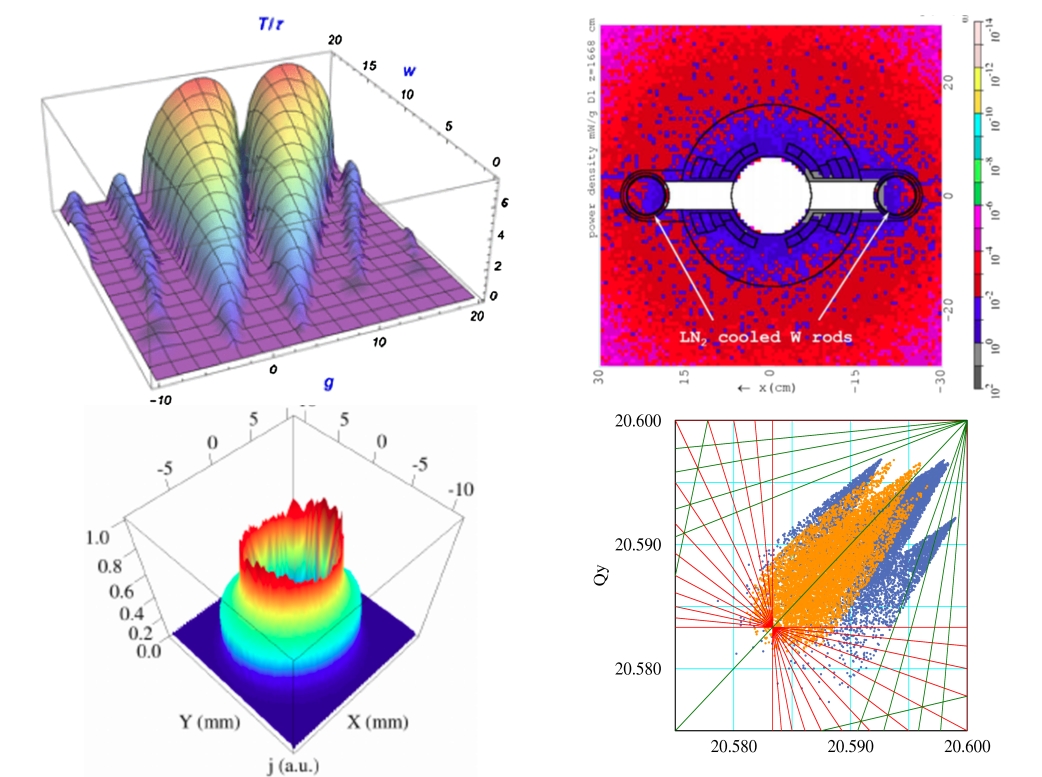Modeling/Energy Deposition and Theory

Modeling Energy Deposition and Theory Mission: The goal of the APC Modeling Energy Deposition and Theory Department is to is to advance beam physics understanding both through theoretical and experimental research, to provide accelerator physics and design support to various Fermilab's projects, and to develop new modeling tools and support existing ones widely used by the HEP and accelerator community.
Energy Deposition/MARS
This group provides its expertise to all Fermilab accelerator-based projects. It also develops corresponding software tools to simulate beam induced radiation doses and the beam halo collimation modeling and provides assistance to the US and foreign community of users of these tools. In addition, the group develops parallel processor capabilities for advanced scientific simulations and maintains MARS code - the community's standard for the beam-induced radiation and energy deposition simulations.
PI: Nikolai Mokhov
Theory and Modeling Group
This is Fermilab's leading team that carries out theoretical beam dynamics calculations and development of accelerator physics tools and models. It also participates in beam studies and provides accelerator physics support to all Accelerator Division activities, programs and projects, including the Proton Improvement Plan (PIP), PIP-II, accelerator operations and various collaborative programs, including LHC upgrades, future muon facilities, future very high energy hadron colliders, etc. Group's expertise includes the electron lens and beam-beam compensation studies and simulations, beam optics measurements, accelerator design optimizations, beam instabilities and many other studies topics, closely related to the Fermilab accelerator complex operations, improvements and upgrades. The group provides modeling and simulation expertise to other accelerator R & D activities within the APC and supports the education and training activities.
PI: Dr. Yuri Alexahin
Department Head: Nikolai Mokhov
- Last modified
- 03/2/2017
- email Fermilab

